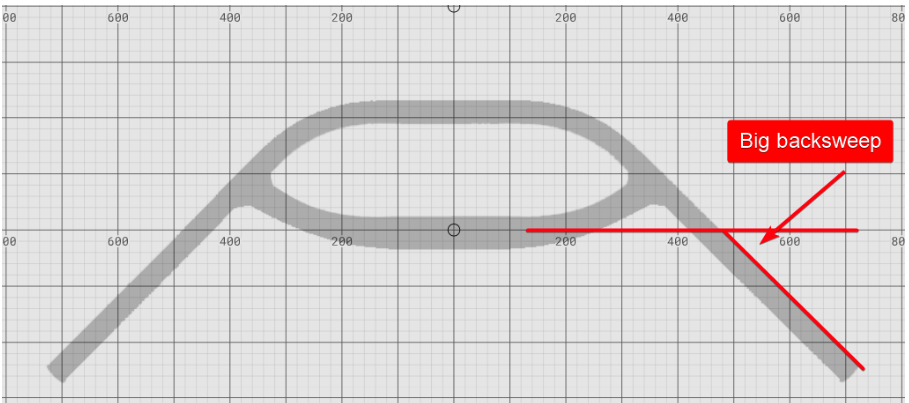Yes, you SHOULD use ChatGPT for your copywriting. Here’s how…
April 23, 2023 • Glenn Murray

Like most writers out there, I’ve been thinking about how ChatGPT will impact my business.
And I won’t deny, for a while I was worried. It’s been hard enough trying to compete with the low-value content farms, and ChatGPT is far better than them. Its writing is better, it has better subject matter knowledge, and it writes infinitely faster.
I suspect you’re thinking the same thing.
But I’ve since come to the conclusion that there’s no real need to worry! In fact, I believe ChatGPT is an opportunity, even for real writers like you and me! Read on to find out why…
ChatGPT can’t beat us at 2 things…
There are two key areas where we have a distinct advantage over ChatGPT (and, I believe, any other AI): subject matter expertise and helpfulness.
Subject matter expertise
ChatGPT seems knowledgeable at first glance, but in reality, it doesn’t actually possess knowledge, as a human possesses knowledge. It’s just reciting a summary of information scraped off the internet.
Plus, it often gets the facts wrong, misinterprets the facts and contradicts itself. This will obviously improve, but it will never have hands-on experience with the subject matter. It will never be able to reflect, as a human would, on how well the subject matter met its information needs. It lacks subjective human experience.
Basically, I think what we have here is a very extreme case of the distinction between ‘book knowledge’ versus ‘on the job experience’.
Helpfulness
We writers can conceive innovative, outside-to-box solutions to problems and make lateral connections between ideas. Partly because of our subjective, hands-on experience, and partly because humans have evolved exceptionally creative problem-solving skills.
Plus we have the ability to identify, intuitively, what information that other humans are most likely to be looking for. We know that humans are typically most interested in the grey areas and complexities of a topic, and we’re very good at quickly identifying where those grey areas and complexities are.
And finally, as empathic beings, we naturally have a pretty good sense of what sort of explanations will most effectively appeal to and help different types of readers.
So we need to be more informed and more helpful than ever
I’ve been ranting for decades about the need for helpful, informative content. This article, this article, this article and this article are just a few examples. In a way, this article is just another of those rants.
I believe we need to double down on subject matter expertise and helpfulness. We need to write more original, more helpful content that are based on our unique understanding and real-world experience.
We need to be able to answer “yes” to all of the below questions before we even consider hitting the ‘Publish’ button:
- Have I done more than just regurgitate other content on the internet (including our own old content)?
- Is my content better than all other content on this subject?
- Does it contain more (or more helpful) information?
- Does it contain my own personal perspective / opinion / experience / findings?
- Would I share this content with my friends and family?
- Do I think readers will want to share it?
- If I were applying for a job as a journalist or a copywriter, would I be happy to show them this content as proof of my skills?
For example, if you’re writing an article like ‘10 Great Tools for Discovering Your Family Tree’, don’t just reel off the features of each tool as claimed on their websites. Instead, include information like this:
- Your preferred tool (and why)
- Problems you had using the tools
- Criticisms of the tools
- Verdict about ease of use, value for money, speed, etc.
- Which tool is more effective in your experience
- Which tool has better support
- Which tool provides more information
- Which tool has more trustworthy / accurate information
- Results of your tests
- Etc.
But we can also use ChatGPT to our advantage
It’s also incredibly important to remember that ChatGPT is a technology, and technology is a tool! Yes, it’s a threat in some ways, but just like fire, it’s still a tool that can be used to our advantage.
So rather than focusing on how it can harm us, we should be focusing on how it can help us.
In the short while I’ve been using it, I’ve learned that it can accelerate my initial learning about a subject matter. For example:
- If you ask it lots of questions, you’ll very quickly learn the basic parameters of the subject matter. I imagine that it’s sketching me a map. A lot of the towns and roads are missing, but the distances and directions are approximately correct, and the more questions I ask, the more details it fills in.
- If you pay close attention to its answers and read between the lines, you’ll find it uses helpful phrases that will help you dig deeper into the subject matter, and even sentences and paragraphs that you can re-use in your content. This is kinda like interviewing a subject matter expert and adopting the terminology they use.
- You can ask it to write the outline of an article, then use this outline to help distil your thoughts very quickly. You shouldn’t use the structure it proposes without change (because then you wouldn’t be providing more value than ChatGPT), but you can definitely use it as an aid/inspiration.
- If you ask it to write an entire article, and specify the word count, you can gain inspiration and also see the minimum amount of helpful information you need to cover in your own content. It’s the minimum because if you don’t provide at least as much helpful information as ChatGPT, you’re not providing any more value. (And for the same reason, you should never directly use the article it generates.)
- Look for logical flaws, factual errors and contradictions in its replies, and challenge them. This will enable you to learn from its mistakes. For example, it errors may point to points the experts disagree on or concepts that are really hard to explain, and by diving into these areas, you may discover the elusive, sought-after knowledge that will set your content apart. Again, readers are almost always interested in the grey areas.
Some of this may sound a bit theoretical, but once you start doing it, you’ll quickly see what I mean.
The trick is to be smarter than those competitors just copy-paste ChatGPT’s output. To be constantly trying to think of new ways to use it for profit, while still delivering more value than it. Perhaps even to develop valuable intellectual property (IP) around our use of it.
We’re smart people! Let’s be ChatGPT pioneers, and use it in ways that no-one else is using it, or has even thought to use it!
For example…
I had a ‘discussion’ with ChatGPT recently that illustrates a lot of what I’ve talked about above.
But firstly some background…
I cycle a lot, and I struggle with finger numbness. A lot of people say that a handlebar with a greater backsweep angle can reduce/eliminate finger numbness.


So I’ve been doing a lot of research to find out if this is actually true and, if so, which backswept handlebar would be best for me (i.e. the ideal angle for my body).
As part of that research, I asked ChatGPT about two specific handlebars:
- The Jones H-Bar
- The Surly Moloko Bar
Here’s the discussion I had with ChatGPT. I know it’s long, but it shows quite a few mistakes and other problems. It’s in these weaknesses that our greatest opportunity lies.
So what was wrong with ChatGPT’s output?
If you read all of the above example, you probably noticed that ChatGPT made numerous errors and generalisations in its responses and the articles it wrote. But the problems went further than that…
Even when I tried to get it to be very specific (e.g. when I asked it to write a 2,000 word article on the impact of back-sweep), it never really nailed it. It added some more general information and some fluff, but it never got down to nuts and bolts.
I look at what ChatGPT spat out, and I think:
Man, this is chaotic. So much to check, refine, filter, correct, remove and supplement here. So many more questions to ask and so much independent research to do. But still, this is a very helpful start.”
That’s how I think any good writer should approach ChatGPT and its responses. Only then will your articles be beyond the reach of AI.
Here’s what I’d do differently
If I were writing an article on this subject matter, I’d discuss:
- The physiological reasons for finger numbness (compressed nerves due to pressure on the wrists, wrist bend angle, vibration through the front forks, upper body weight, core strength).
- The fact that everyone’s body mechanics are different.
- The fact that many apparent experts recommend you grasp a tube in each hand, extend your hands out in front of you and relax so you’re holding them in as neutral a position as possible. The angle of the tube reflects your natural grip angle and, thus, the backsweep angle you should be looking for. This video explains this technique very well.
- The fact that some bike fitters / physiotherapists contest the above recommendation (including mine ?).
- The fact that many buyers of both handlebars say these bars reduced / eliminated their finger numbness.
- Some quotes from buyers and experts.
- The fact that you may need to change your stem, because the backsweep will result in the ends of the bar being very close to your body, and your knees may clip it as you pedal.
- The fact that if your bike is old (like mine) you may need to change your stem because old stems don’t fit most new handlebars.
- The fact that if the handlebars make your riding position more upright, you may experience more pain/discomfort from your saddle.
- That I eventually tried the Jones Bar and, although I found it very comfortable, it didn’t fix my finger numbness. The backsweep was too great.
- That I bought a totally different handlebar: the KOGA Satori Denham. It has the same backsweep as the Surly Moloko, but isn’t set as far forward, so it results in a more upright riding posture.
- That I also bought a Satori stem extender to raise my handlebars by about 10cm, which took some of the weight off my hands and wrists.
- That I also bought a pair of Ergon GC1 BioKork handle grips, which are designed specifically for swept-back handlebars.
- That this combination of products solved my finger numbness problem.
- That I also bought a Brooks B67 saddle to eliminate the butt pain that resulted from being more upright.
- Probably much more, because… just try to stop me!
Won’t this take longer?
It really depends on how much time you’re spending making your content helpful now.
I already spend HEAPS of time becoming a subject matter expert, figuring out what my readers need to know, then planning how best to present that information to them. For example, a really well researched, well written 1,500-word article usually takes me about 1-2 days to complete (from planning to publication). Depending on the subject matter, obviously.
So for me, ChatGPT will make things faster, not slower, because now I have an awesome new tool to make research and planning faster.
If you’re banging out content a lot faster than me, you may need to spend a bit longer to ensure you’re delivering more value than ChatGPT. Or you may not; perhaps you’re just much faster than me. I’m certainly not the fastest writer out there!
Will we earn less?
Why would we?
Google rewards long, in-depth, original, topical, helpful, thought-provoking content. So it will rank well, over time, and readers will trust it, engage with it, share it, and buy from us and our clients.
Conclusion
It’s OK to feel a little threatened by ChatGPT. It’s pretty bloody amazing at a lot of things, after all!
But it’s also important to remember that it’s not amazing at everything. And in my opinion, it probably never will be. Certainly not in the foreseeable future.
Please share your thoughts in the comments below. How do you use ChatGPT? Do you think it spells the end for copywriters and content writers, or just a new opportunity?


Kate Crocker wrote on April 25th, 2023
Great article with helpful reminders. Check for accuracy, check, check again. But you're right - it's a highly effective way to find the perameters of the subject matter really quickly.
Reply
Glenn Murray wrote on April 25th, 2023
So true, Kate. Accuracy checking is sadly lacking in so much of our world, today. Thanks for commenting!
Reply
Top 5 must-have traits of great copywriters: Why writing skills alone aren't enough - Silver Pistol wrote on May 5th, 2023
[…] the highly competitive world of copywriting, which is now gradually being inundated with mediocre AI content, you’ll need to possess skills that distinguish you from the sea of average writers […]
Reply
Why aren't I as excited about ChatGPT as you? An interview with copywriter and AI-enthusiast, Ami Williamson. - Silver Pistol wrote on May 26th, 2023
[…] to use, and arguing conversing with it about the nature of humanity. Or when I wrote a very long blog post, back in April, encouraging copywriters to use ChatGPT, and explaining how (in great […]
Reply